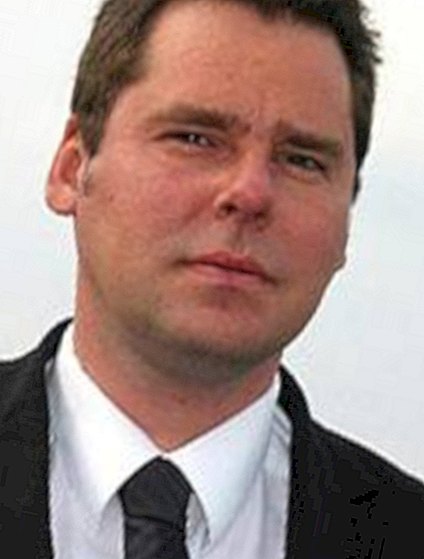Fascination of evil


Specialist in human abysses: criminal psychologist Jens Hoffmann
ChroniquesDuVasteMonde.com: Many people are avid mystery readers: How can this be explained from a psychological perspective?
Jens Hoffmann: Crime stories are mostly about murders or violent crimes, that is, things that people are afraid of. By dealing with it in books, we can bring our fear under control. It's like a friend of mine who is very scared of flying. To overcome them, he has become an absolute flying expert.
ChroniquesDuVasteMonde.com: Now we are confronted daily by the media with death, suffering and crime. Why do not we all resort to healing world literature in our spare time?
Jens Hoffmann: Of course, distraction, ie the flight to a healthy world, can also be a strategy. But the murderer, who hides behind the mask of normality that we may know but still can not recognize, is much more difficult to grasp in his nature, and that's why it's so interesting.
ChroniquesDuVasteMonde.com: So evil exerts a fascination on us ...
Jens Hoffmann: Of course, when we read a thriller, we know it's fiction. But people are also fascinated by real evil. This has been shown, for example, when American prisoner Berg was beheaded in Iraq and the pictures of the Internet execution were taken. That was the most wanted topic on the search engine Google the next day. People wanted to satisfy their sensationalism. But they are looking for more real stories and do not fall into the artistic thriller reading.
ChroniquesDuVasteMonde.com: The fascination of evil is one thing, does identification with evil also matter? Do I secretly go into the wife who shoots her husband's lover?
Jens Hoffmann: They allude to whether we all have the evil, the aggression and the desire to kill in us, which we can then live out in crime reading. This is overestimated in my opinion. Of course we all have aggression in us. But if you look at who gets really violent, there are people involved in relationships that escalate, and people who make serial violence. But they are not like us, but antisocial characters who violate their entire life limits and other people do not care.
ChroniquesDuVasteMonde.com: Most thrillers go well: In the end, the killer is caught. Are crime thrillers so popular because in the end the world order is restored?
Jens Hoffmann: For a long time that was certainly a prevalent motive because all the thrillers were built on it. Lately, there are many more thrillers in which the offender gets away. Serial killers appear partially as people without bond, doing what they want - beyond all moral judgment. This reflects very strongly social developments and fears.
ChroniquesDuVasteMonde.com: No matter if the offender is caught or not. There is definitely more going on in crime thrillers than in everyday life of normal consumers. Can we get the tension from the books into our own lives?
Jens Hoffmann: That certainly plays a role. The media have been suggesting for some time that you have to have a very special life with lots of kicks and lots of action. Of course, that can be done well in fiction.
ChroniquesDuVasteMonde.com: Actually do you access the thriller privately?
Jens Hoffmann: No, I have too much to do with my job. For me it is the other way around: I am happy when I can read other things.

Jens Hoffman, Born in 1968, is a criminal psychologist and mainly deals with the topics of perpetrator profiling and stalking. He works at the TU Darmstadt and also works in a psychological consulting firm.
Video Recommendation:











